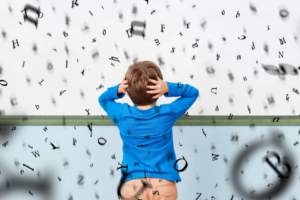
How Music Can Help Children with Disabilities
 Everyone loves music. As we become older, it seems that music develops into a sort of backdrop for our lives. We remember certain moments and relate them with different songs. Of course, we all have our own favorite tunes and certain artists that we tend to listen to. Our appreciation of music appears very early in our lives. As parents and educators, it is special to be able to share our love of music with our kids.
Everyone loves music. As we become older, it seems that music develops into a sort of backdrop for our lives. We remember certain moments and relate them with different songs. Of course, we all have our own favorite tunes and certain artists that we tend to listen to. Our appreciation of music appears very early in our lives. As parents and educators, it is special to be able to share our love of music with our kids.
Something that very few realize is how much music and learning how to play it helps children with learning disabilities, ADHD, and other disorders. The research has been done and it is scientifically proven that music assists with increasing attention spans and the ability to learn. It can strengthen weak areas of the brain and improve fine motor skills as well.
Different Hemispheres
The brain consists of two hemispheres, or sometimes referred to as sides. There is the right hemisphere and the left hemisphere. You may have heard at some point in your life that you were one hemisphere dominant, and this is what that means. The right hemisphere is responsible for controlling the left side of the body. It also is referred to as the artistic or creative side of the brain. The left hemisphere is then responsible for the right side of the body. It is said to be the academic and logical side of the brain.
Playing an instrument is one activity that uses both hemispheres of the brain. Both sides at once are being strengthened. The right side is controlling the music awareness, creativity, and intuition that goes along with learning an instrument. It also controls your left hand and foot that you might need to use for the certain instrument. The left side will be used for the writing of lyrics, the numbers of beats and the various math skills needed, and of course the right hand and foot if it is required for the instrument.
Creating Relationships
It is kind of strange that you might have a bad opinion of someone for some reason, but the moment you find out that they share a favorite musician or song it can change your feelings drastically. Music can bring the most unlikely people together and form a bond when there wouldn’t normally be one.
This is the same for children. Kids with behavior problems and difficulties may change their tune (pun intended) when taking music lessons or classes with others. As an educator, some of my most frustrating students would receive the highest compliments from the Music teacher. Music keeps them actively involved and allows them to express themselves in a way that normal classroom work may not.
Special Needs
Kids with special needs can be the toughest ones to communicate with. Music is often a motivator for these students. They enjoy all that it brings, and receive quite a bit from it. They are using their auditory system and they listen and play along. They are using their visuals as they track the instruments, the cues, and the musicians. Their kinesthetic skills are being improved by the activity of playing the instrument, clapping their hands, or stomping their feet. It truly is a multi-sensory experience.
My little nephew Landon was born with a condition called Williams Syndrome, a rare genetic disorder. But this disorder has something quite extraordinary about it, most born with it have a deep love of music. They are genuinely touched by music in a way that most people cannot quite understand. Music can sometimes instantly make them happy, sad, laughing, or crying.
Williams Syndrome is quite rare, only common in about one in 20,000 births. It is a developmental disorder that affects the body and intelligence. Most kids with Williams Syndrome are quite a bit shorter, have similar facial features, and have heart and cardiovascular problems. They are also generally very joyful, and will always put a smile on your face with their sincere love of those around them.
Those born with Williams Syndrome usually have a heightened sense of sound. Their hearing sensitivity can seriously affect them when they are in loud places, but it also enables them to listen to music in a different way. They are able to remember lyrics and notes extraordinarily well if they enjoy the music. Those with Williams Syndrome can literally spend continuous hours listening to or making music on an everyday basis.
My nephew Landon and others with Williams Syndrome are not the only ones that can benefit from music and musical therapy. Music lessons will assist with developing better behavior, more focus, improving fine motor skills, and opening up a creative avenue that they may achieve great things through. The old saying goes that music can soothe the most savage beast, but more importantly it can also provide friends, good memories, and inspiration to those that need it the most.
Written by Ryan Crawley
Interested in music lessons? Contact us today to learn more about how our music instructors can help your child!



